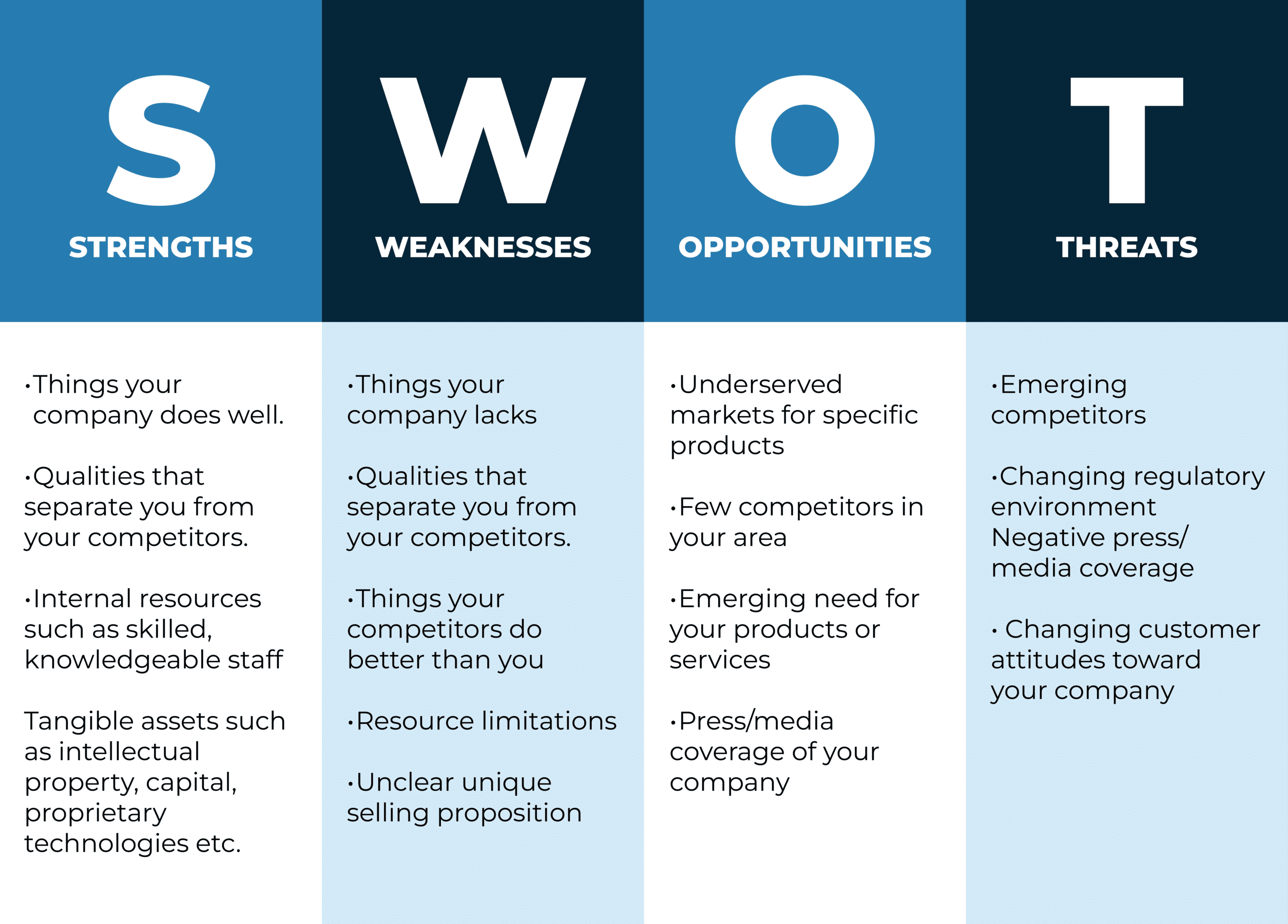New businesses are registered daily in the UK. In 2021 alone, there were over 750K of them registered in the country. It’s a burgeoning market for start-ups and businesses out there. However, even though making it all official is a crucial step in getting started, it doesn’t ensure success. Only 40% of companies survive over the first three years. Why? Because launching a profitable business demands thorough planning and preparation.
Before you begin, you must have done some solid groundwork outlining your concept and unique value proposition (UVP), how you intend to organise and promote your business, and how you will manage its finances.
In this blog, we are providing a checklist for Starting a Business in the UK. We will lay out easy-to-follow steps to start a business from scratch and hit the ground running!
Try Out Your Business Idea
Your business idea should address an issue that people have, close a market gap, and add value over the long run. This is the first step to what is needed to start a successful business. Have a think, what problem does your idea solve, or what need does it fulfil?
Your business idea should address an issue that people have, close a market gap, and add value over the long run.
Start by doing a SWOT analysis to determine the viability of your idea. Strengths, Weaknesses, Opportunities, and Threats constitute a SWOT analysis.

You may find the aspects of your organisation that are doing well by doing a SWOT analysis. These are your crucial success elements, and they provide your company an edge over the competition. You can ensure that you preserve these strengths so that you don’t waste your competitive edge. Finding strategies for utilising and enhancing these strengths is necessary for business growth.
SWOT analysis can also help you analyse your weaknesses that make your business less competitive than others. You may recognise these features and reduce or enhance them before they become an issue. It’s crucial to be honest while performing a SWOT analysis regarding your business’ flaws so you can effectively address them.
Develop A Brand For Your Business
Your market research will reveal how your rivals are positioning themselves. Utilise this information to establish a distinctive brand.
Your company name and logo are the two primary identifiers at this initial stage of the process. Later on, further branding components might include a webpage and marketing materials.
Your business’ name and logo are what give life to your vision.
Your business’ name and logo are what give life to your vision. Utilise our Business Name & Domain Search Tool, which has a catalogue of all names out there and is designed to help you secure your business name and domain. It’s critical because the name serves as an initial and lasting impression of your business. Being original and true to yourself and having a brand aligned with your own views and beliefs will position your business for success.
Business Name & Domain Search Tool
Create A Business Plan
This step is crucial towards setting up a business, whether in the UK or elsewhere. An overview of what you’re going to accomplish and how you’re aiming to do it may be included in a business plan.
It helps you concentrate on the direction your business must go in order to accomplish its objectives and persuades others that your business is a wise investment, which is especially crucial if you want to position your business to attract investment or raise finance.
Your business plan should include dedicated space for a Business summary, Business idea, Marketing and sales strategy, Management structure, Business Operations, and Financial projections. It is important to keep the reasons why you set up your business and your aims in mind when writing a business plan. It is good to review a plan yearly and this is a great way to focus your analysis.
Select A Structure For Your Company
To Start a Business in the UK, you need to register it first, and for that, you need to know the legal requirements. Below is a list of the different legal structures a business can take when being formed.
Sole Trader- a person who works by themselves and owns and manages their own business. You retain all of the earnings after taxes, and registration is free. It is the most typical business form for individuals who operate alone, such as freelancers, designers, and artists.
Limited Company (LTD)- This is a business that has a distinct legal status from its owners and directors, it is a completely separate entity. As the business goes into contracts and accrues corporate obligations, it reduces your personal accountability. This implies that you are not forced to sell personal property to pay off debt since the money you make belongs to the corporation and must be withheld as a wage and/or dividends.
Partnership- Like a sole trader, except both the partnership and the individuals need to register for self-assessment. If one partner goes, the partnership must end.
Limited Liability Partnership (LLP)- In regards to registration and accounting, it is comparable to a private limited corporation, but liability is divided among partners.
Determine Costs And Financing Sources
In your business plan, you will include the expenses related to launching and maintaining your business. To determine precisely how much you’ll need to spend, it’s important to take a step further and categorise these charges.
Stock, premises and business rates, licences and insurance, promotional materials, financial and legal advice, taxes and national insurance, office material like stationery etc., are a few of the initial expenditures to consider.
Knowing precise costs will allow you to explore the funding sources accordingly. For more on this, read our guide to financing a new business in the UK.
Read More
Learn About The Relevant Rules And Regulations
About a third of small-to-medium companies (SMEs) see red tape as a hurdle to success. However, things don’t have to be this way. The knowledge you need to get beyond these hurdles may all be accessed for free online.
The business section of GOV.UK website provides comprehensive information on all you need to know. While some of it may not be applicable to your business, the majority of it will. Knowing this information prior to making a business transaction is essential for your success as well as to prevent a fine or other severe penalties.
Obtain a License or Permit
You might need to get a licence or permit in order to conduct business lawfully in the UK.
Finding out what sort of licence you require is the first step. The Licence Finder on GOV.UK can help you with this. You can use this tool to locate the appropriate person within your local government.
The sort of licence you’re seeking, as well as any associated fees, will determine the cost of your licence. You might additionally need to provide documentation of an accredited qualification to get the licence or permit.
Determine Your Workplace
If at all feasible, consider starting off by working from home since commercial properties are a significant expenditure. This is a simple choice if you’re beginning a digital business such as graphic design or freelance writing. This may enable you to save on commercial lease and business rates. On your tax return, you’ll also be allowed to deduct a portion of household expenses, including energy, heating, lighting, broadband, and council tax.
If you are unable to work from home, using a co-working facility or shared business centre may help you save expenses. This also entails affordably hiring a desk or tiny office space inside a bigger establishment.

Start Marketing Your Business
Out of all the steps to setting up a business, marketing can make or break your business in the end. Therefore, before investing any significant money in creating or maintaining your unique value proposition, it’s a good idea to validate it. This way, you can be certain that when you debut, your offerings will appeal to and be purchased by your target market.
Marketing can make or break your business
It’s pretty common for business owners to launch into marketing their business and spending hefty sums on their branding and marketing collateral. It’s therefore incredibly important that you ensure that you’ve done your research ahead of this and your logo, branding and name isn’t infringing on any other business’.
Make sure to utilise our business name registration service for the UK to rule out any potential infringement of intellectual property.
It’s ideal if you already have a following as a result of creating pre-launch content. However, it’s totally fine if you don’t. The moment to develop one is now.
You may promote your company in a variety of methods, including word-of-mouth promotion, networking events, advertising in local publications and online, among many others. Digital marketing is now often the most effective way to get consistent results. More than half of marketing executives’ overall budgets were spent here in 2022. It goes to show the value of marketing in realising business goals.
Get Adequate Business Support
Even though starting and owning a business in the UK is exciting, the daily grind may be demanding. It is reported that a third of business owners look for guidance and information on managing their operations on a day-to-day basis. Additionally, about 40% of business owners sought out strategic experts to aid with expansion.
Finding the correct assistance can be essential for overcoming obstacles and avoiding potentially expensive errors.
Fortunately, expert counsel and business assistance are widely available. Start.Biz offers comprehensive assistance towards setting up a business.
At Start.Biz we help prospective and existing business owners with start-up packages and other services which support them and their business as they look to grow.
Contact Us
Summary
- Use a SWOT analysis to try out your business idea.
- Make sure your business name, logo and overall branding are good and unique.
- Create a business plan that includes a Business summary, Business idea, Marketing and sales strategy, Management structure, Business Operations, and Financial projections.
- Choose a structure for your company. This could be Sole trader, Limited company, Partnership, or Limited liability partnership
Make a list of all your potential expenditures and figure out the source of funding for them. - Research the relevant rules and regulations for your business.
- Check whether you need a licence or permit for your business type.
- Determine whether you are going to work from home, lease a dedicated space, or get a place in some shared facility.
- Market your business and establish a following. Use digital and traditional marketing methods.
- Draw upon the services of a professional business support provider. It will make things a lot easier for you.






